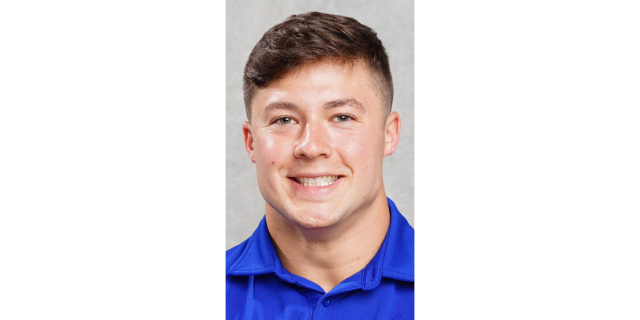Keeping Fit: Common mistakes in the gym for muscle growth and strength
Published 8:00 am Wednesday, March 12, 2025

- Tucker Gregg
Many gym-goers train for hours and hours every day but never see any progress. After observing for quite a while now, I have come to notice three issues that many get wrong, that if changed could take your muscle growth and strength to the next level.
Many factors can come into play but the three biggest mistakes that I have noticed are inadequate training intensity, lack of progressive overload and failure to achieve a full range of motion. Here’s how and why these things are important for muscle growth and strength.
Training intensity
Trending
I’m mentioning this first because most people don’t perform their sets hard enough to produce any significant adaptations. Your muscle fibers are responding to the tension that you place on them. This was well laid out by Dr. Brad Schoenfeld in a popular Journal of Strength and Conditioning article in 2010.
In his review paper, “The Mechanisms of Muscle Hypertrophy and Their Application to Resistance Training,” he explained that mechanical tension is the primary driver of muscle growth. This occurs in the vast majority of muscle fibers when the load is heavy enough to prevent more than about five or six repetitions, or in the last five repetitions of a higher rep set. Therefore, if you use a weight you could do 15 repetitions with but stop at 10, you are giving your strongest, most responsive muscle fibers almost no stimulation at all. Ugh! No wonder your progress is so slow.
Progressive overload
Which brings up the next important point: The whole purpose of strength training is to help you get progressively stronger. If you use the same weight for the same number of repetitions each time you come to the gym, you will quickly reach a plateau.
You see, when the intensity of training is high enough (point one) you will adapt and become a little bit stronger during the next couple of days, so that the same weight will begin to feel less intense.
All progressive overload means is that next time you come into the gym you need to do a little more than last time to keep up with the adaptations. Usually this means doing an additional repetition or adding a little bit more weight, so the adaptations can keep coming. This is pretty common knowledge, but so many do the same thing day in and day out.
Trending
And if no progress in either repetitions or load is being shown, then your training is not working and you need to make a change. Usually this means increasing the training intensity (point one again) or getting better recovery to allow the adaptions to manifest. Some people do too many hard sets and reps with insufficient recovery between workouts to be progressive.
Full range of motion
Time and time again I see people doing partial reps where they aren’t letting the muscle fully lengthen in the exercise they are doing. This can be an ego check for some because typically you won’t be able to lift as much weight when using a full range of motion. But moving a weight from the full contraction to full extension can often produce better muscle gains.
A meta-analysis from the Scandinavian Journal of Medicine and Science in Sports found that training with a full range of motion significantly outperformed partial range of motion (Pallarés et al., 2021). The reason for this is because doing the full range of motion tends to pass through the zone of maximum tension the muscle can generate. Stopping short of full lengthening and working in only the top half of a movement avoids these degrees of maximum tension, making it less effective for building strength and muscle mass.
Conclusion
Next time you’re at the gym try adding these methods. It will be much harder, especially at first, but these simple fixes will move you out of that plateau and improve your strength and muscle size significantly. If you feel like you need someone there to help push the intensity, track your progression and critique your form, come on down to the Bradley Wellness Center. We’d be glad to help.
Tucker Gregg is a fitness consultant at the Bradley Wellness Center.






